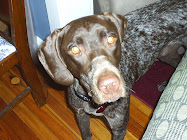The world of fiction is a lesser place without Michael Crichton.
I have enjoyed Mr. Crichton’s fiction ever since I was thirteen years old, when I first picked up The Andromeda Strain. I read it nearly in one sitting, and considering my age and lack of attention span at the time, that says a lot about the book. But unlike other authors, I never “grew out of” his stories. With each new release, no matter how old I was, I found myself enjoying his fiction as much for its entertainment value as for its educational value. I felt I learned something, something important and fundamental to the universe we live in, each time I read one of his stories.
It wasn’t until I started studying literature in college that I became aware of two contradictory things: many of the literati didn’t even deign to consider him a good writer; and yet, he was the 20th and 21st centuries’ living embodiment of Sir Arthur Conan Doyle, H.G. Wells, and Jules Verne (who were all revered in academic circles). Where these authors dared to go, he dared to go farther, while lending scientific verisimilitude to his stories. He strived first and foremost to entertain and thrill his readers, and he succeeded with every book he produced. But he considered it just as important to explore ideas and challenge conventional thought. Few other “popular fiction” writers ever caused as much controversy as he did with State of Fear, and to a lesser extent with other stories like Disclosure and Rising Sun.
Why the academic and literary snobbery directed at Mr. Crichton? (I’m sure he was crying all the way to the bank.) He certainly didn’t deserve it. Many decry his characterization, or purported lack thereof. Mr. Crichton plumbed the depths of human nature just as well as anyone else when it was important to the story he was telling. Case in point, if you haven’t read any of his works, I suggest you start with Sphere. It’s my personal favorite of his stories.
It also appears to be fashionable to ridicule him for his depiction of women. Disclosure caused quite a stir when it was released. I don’t know if and how he ever responded to these criticisms. But most of the criticisms leveled at Mr. Crichton seemed to be politically-motivated, or just as bad, were borne out of arbitrary aesthetic principles—heaven forbid he make a woman the antagonist of one of his stories! That' s just not right! (By the way, wasn’t the main character/protagonist of Airframe a woman?) Apparently, it's only literarily acceptable for a woman to be the antagonist if she's a femme fatale in a noirish type of story.
I’ve read my fair share of novels and have enjoyed many different types of stories. But his are some of the very few that I would call interesting. He knew how to move a plot, and he knew how to integrate weighty intellectual concepts into the narrative that (gasp) actually enhanced the story he was telling.
Above all else, Mr. Crichton believed that the masses would enjoy a story that was both entertaining and intelligent. And he proved himself right every step of the way.
3 weeks ago






6 comments:
I always loved him, too. His treatment sometimes make me think some people are prepared to hate everything (that they didn't write).
But then, if the critics hate something, I'm guaranteed to find it entertaining. *shrug*
Emma,
Is it any coincidence that we both enjoyed his writing? :)
And I'm with you--if the critics hate it, chances are I'll like it too. Or at least look for a reason to disagree with them.
-B
Well said, Brian. I too, shall miss him, and his thought provoking work. I pulled many an all nighter with one of his books in my hand.
I haven't read too many commercial fiction novels more than once, probably less than a dozen. I've always felt that there were too many other stories out there that I wanted to experience to justify a re-read, unless I really, really enjoyed a particular story. Rising Sun is one of my few re-reads, and I've always wanted to revisit Sphere.
Brian,
Thank you for your post. I am a Crichton fan, always have been, and now, always will be. You learned something every time you read his books, and for that, I consider him our contemporary master fiction writer. I doubt we'll see a similar writer ever come across, and even if he does, he'll have a challenge filling the shoes of the late, great Michael Crichton.
Drew
Drew
You're absolutely right. Crichton's are some pretty big shoes to fill. I just picked up The Great Train Robbery last night. It's the only fiction story of his I haven't read yet.
-B
Post a Comment